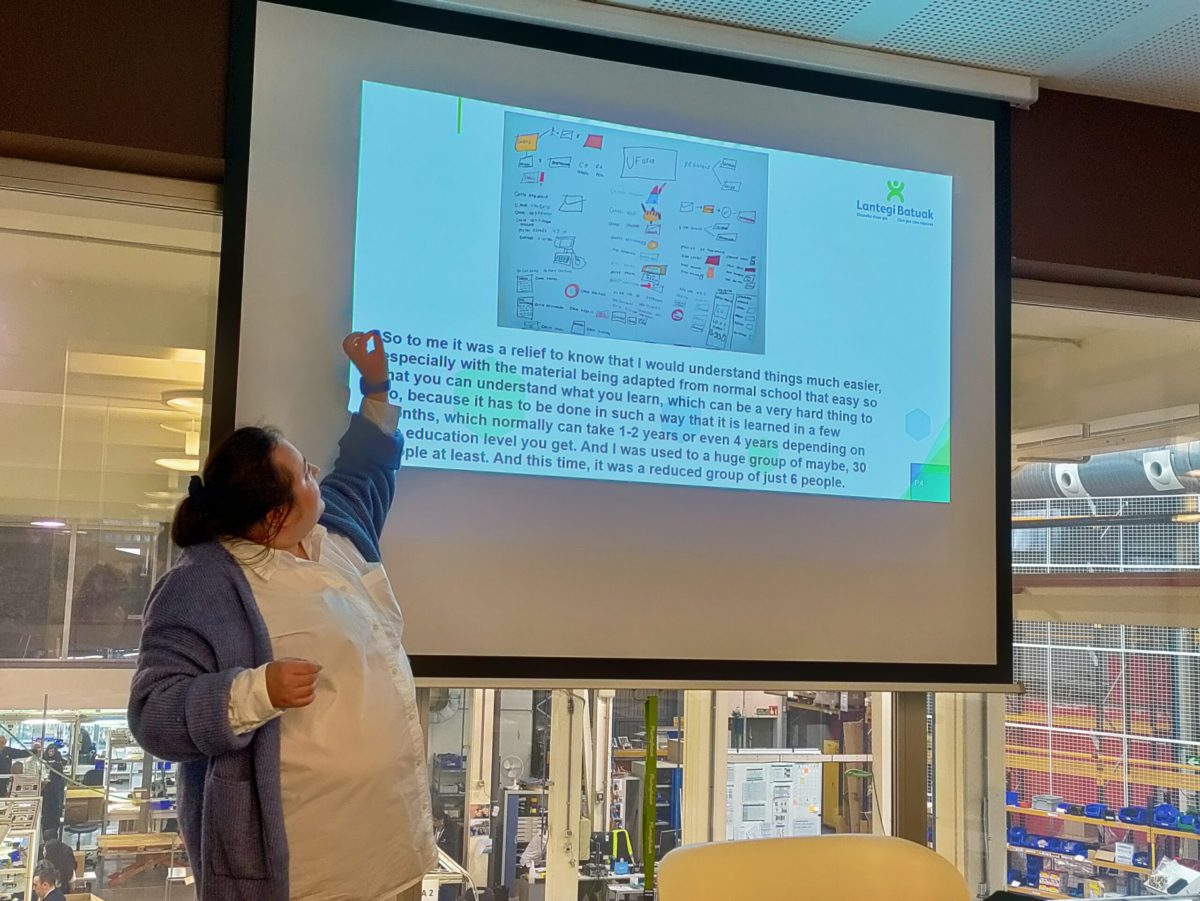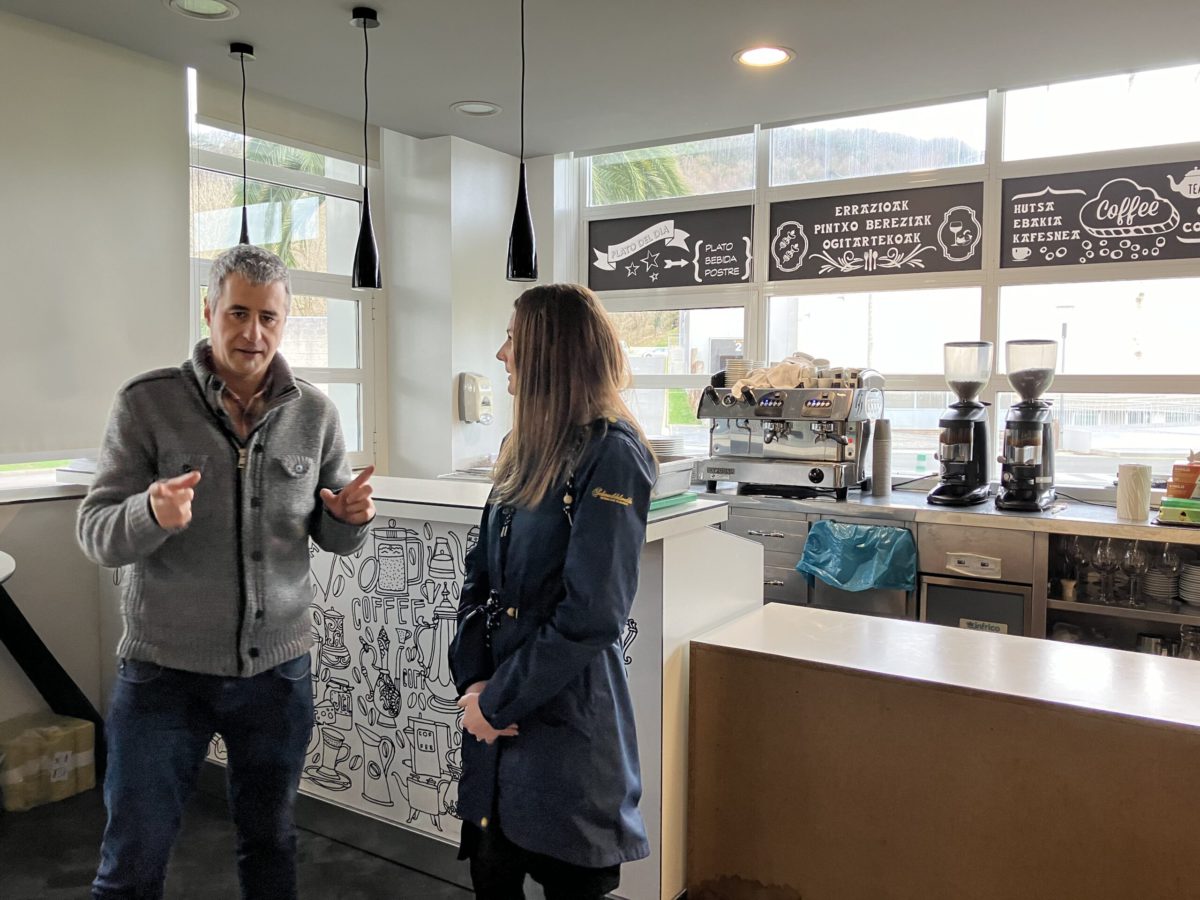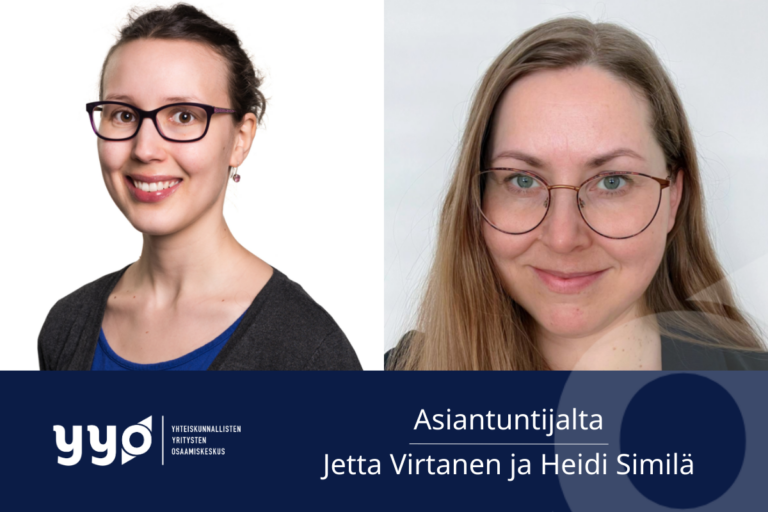Read the text in Finnish here.
Both Gureak and Lantegi Batuak have roots in the 1970s and 1980s, initiated by parents of differently-abled children who recognized the potential contributions their children could make to society. These families worked towards providing educational opportunities for their children and later expanded to create employment opportunities for them.
Lantegi Batuak and Gureak are both categorized as Special Employment Centres (SEC). In such organizations, at least 70 percent of employees must have a disability that affects their functional capacity, such as developmental disabilities, physical disabilities, or mental health issues. Gureak employs around 6,000 individuals, of whom 83% require support, while Lantegi Batuak has a staff of over 3,100, with 82% needing assistance.
Both organizations describe themselves as integral parts of the communities they operate in. Lantegi Batuak has 23 locations in the Biscay region, and Gureak has 14 locations in the Gipuzkoa region. Given the mountainous and challenging terrain of the Basque Country, these businesses have had to reach out to where people are to ensure everyone has a genuine opportunity to participate. Moreover, these enterprises engage in various industries, providing a broad range of services for local people and diverse job opportunities for individuals with specific work abilities.
Diverse Tasks and Significant Clients
We had the opportunity to closely observe the operations of both organizations. In one location, they manufacture wiring for the automotive industry, while in another, they digitize official documents for government agencies. In a third, they handle laundry for hospitals, care facilities, and hotels. What ties all these tasks together is breaking them down into small components, creating tailor-made and easily learnable tasks for everyone. Work is always conducted in teams, allowing employees to support each other.
For example, Lantegi Batuak offers services such as cleaning, gardening, document management, and meal delivery for the elderly. In addition to these, they undertake various subcontracting jobs in industrial production, catering to the needs of the automotive industry. Notable clients for Lantegi Batuak include companies like Coca-Cola. On the other hand, Gureak boasts an impressive list that includes catering services, laundry services, a printing house, postal services, daycare centers, contact center services, gas station operations, and grocery stores, among others. In the industrial sector, Gureak’s clients include companies like Siemens, Otis, and the Danish wind power company Vestas.

Employees are paid a fair wage for their work, and both organizations emphasize that their selling prices are not lower than those of other Spanish companies. They aim to attract and retain customers primarily through the quality of their work. If the price and quality are not satisfactory to the buyer, the societal impact of their work is irrelevant to industrial clients. However, if deals are made, the social aspect often becomes an added value. Additionally, innovation plays a significant role, as it can surpass competitors. New job opportunities and service offerings are actively developed, as automation and artificial intelligence reduce traditional job roles.
Putting People First
In Spain, the law mandates companies employing over 50 people to hire individuals with specific work abilities. However, companies can seek exemptions by citing reasons such as hazardous working conditions. Alternatively, the obligation to hire can be avoided by entering into a commercial agreement directly with a self-employed individual with specific work abilities or an organization like Gureak and Lantegi Batuak that employs individuals with specific work abilities, making a direct donation, or paying a fine. In practice, these alternatives often prove more costly for companies than hiring individuals with specific work abilities.

The Basque Country has its own taxation, healthcare system, police, and education system, all implemented within the framework of Spanish law. The region has developed its own inclusion model, which can be considered a European model for both the employment of individuals with specific work abilities and the community economy. The model places emphasis on considering the holistic situation of individuals and aims for long-term impact rather than quick solutions. Additionally, the region widely employs the Social Value Integrated calculation model, which illustrates the societal value generated by businesses. For example, it quantifies how much society saves on pension contributions when individuals are employed.
Both visited organizations impressed us with their high level of business expertise and their ability to adapt to a changing world, finding new operational solutions and business ideas. Overall, the study trip was a thought-provoking experience! Despite a tight schedule, the evenings allowed us to enjoy the beauty of the Basque Country. We extend our heartfelt thanks to Lantegi Batuak and Gureak for their hospitality. All the employees we encountered warmly welcomed us and proudly presented their roles with skill and professionalism.
***
The Basque Country, Euskal Herria, is an autonomous region that belongs to Spain, located on the border between Spain and France. In this mountainous area, approximately 3 million Basque people reside, with 700,000 of them speaking Basque as their native language. The region is one of the wealthiest in Spain and is known for its diverse industries. There are also Basque communities on the French side of the border.
Text: Jetta Virtanen and Heidi Similä
Jetta Virtanen (MSocSc) works at the Live Foundation in the Coordination Project for Improving the framework conditions and capacities of social enterprises and their ecosystems (ESF+), as part of the Social Enterprise Center of Expertise. As the Central Finland Regional Coordinator, she provides local actors with support in areas such as development project applications and modified work initiatives.
Heidi Similä (MA) works at the Live Foundation as a Regional Planner in the Coordination Project for Improving the framework conditions and capacities of social enterprises and their ecosystems (ESF+), also part of the Social Enterprise Center of Expertise. Her responsibility covers Northern Ostrobothnia, with a specific focus on promoting social entrepreneurship and the employment of individuals with targeted capabilities.
